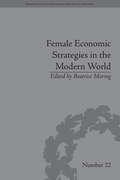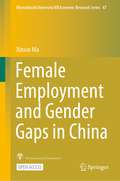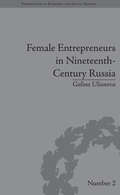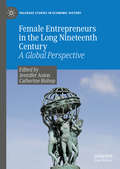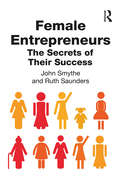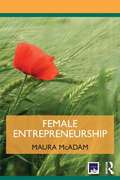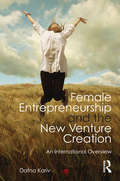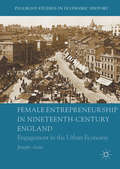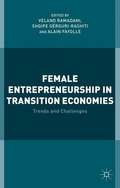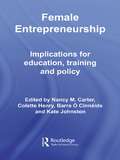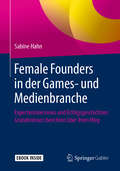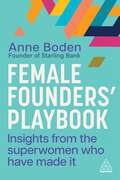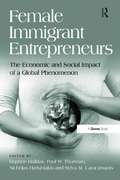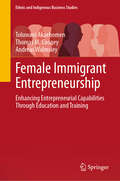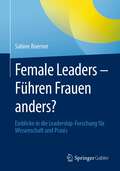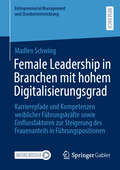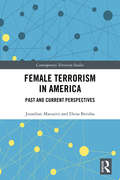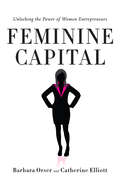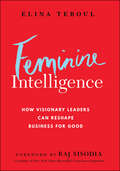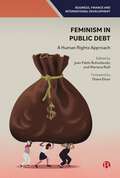- Table View
- List View
Fei Cheng Wu Rao (If You Are the One): The Media as a Reflection of Society
by Christopher Marquis Juelin Yin Zoe YangAs Fei Cheng Wu Rao, China's most popular entertainment program, enters its fourth year, company leaders grapple with questions of how to keep the show fresh and reach new markets. In particular, the show is poised to expand to Africa, yet there are significant questions about how to tailor a program designed to capture the attention of a unique demographic within China to new cultural contexts.
Fei Ni Mo Shu (You are the One) and the Chinese Employment Market
by Christopher Marquis Qi Li Ying ZhangThis case study shows the evolution of the Chinese television program Fei Ni Mo Shu (You are the One), from an unrecognized show in 2010 to becoming a television phenomenon in 2015. The success of Fei Ni Mo Shu (You are the One) has resulted from it reflecting the current Chinese labor market, people's career attitudes and what Chinese employers demand from the employees. As Fei Ni Mo Shu enters its sixth year, the show's producer grapples with questions of how to keep the show fresh and appealing as the underlying social and economic conditions that led to its success change.
Female Economic Strategies in the Modern World (Perspectives in Economic and Social History #22)
by Beatrice MoringThis collection of essays looks at the various ways in which women have coped financially in a male-dominated world. Chapters focus on Europe and Latin America, and cover the whole of the modern period.
Female Employment and Gender Gaps in China (Hitotsubashi University IER Economic Research Series #48)
by Xinxin MaThis open access book investigates female employment and the gender gap in the labor market and households during China’s economic transition period. It provides the reader with academic evidence for understanding the mechanism of female labor force participation, the determinants of the gender gap in the labor market, and the impact of policy transformation on women’s wages and employment in China from an economics perspective. The main content of this book includes three parts―women’s family responsibilities and women’s labor supply (child care, parent care, and women’s employment), the gender gap in the labor market and society (gender gaps in wages, Communist Party membership, and participation in social activity), and the impacts of policy transformation on women’s wages and employment (the social security system and the educational expansion policy on women’s wages and employment) in China. This book provides academic evidence about these issues based on economics theories and econometric analysis methods using many kinds of long-term Chinese national survey data. This book is highly recommended to readers who are interested in up-to-date and in-depth empirical studies of the gender gap and women’s employment in China during the economic transition period. This book is of interest to various groups such as readers who are interested in the Chinese economy, policymakers, and scholars with econometric analysis backgrounds.
Female Enterprise Behind the Discursive Veil in Nineteenth-Century Northern France
by Béatrice CraigThis volume explores the role of women in business in nineteenth-century Northern French textile centers. Lille and the surrounding towns were then dominated by big and small family businesses, and many were run by women. Those women did not withdraw into the parlour as the century progressed and the 'separate ideology' spread. Neither did they become mere figure heads - most were business persons in their own rights. Yet, they have left almost no traces in the collective memory, and historians assume they ceased to exist. This book therefore seeks to answer three interrelated questions: How common were those women, and what kind of business did they run? What factors facilitated or impeded their activities? And finally, why have they been forgotten, and why has their representations in regional and academic history been so at odd with reality? Indirectly, this study also sheds light on the process of industrialization in this region, and on industrialists' strategies.
Female Entrepreneurs in Nineteenth-Century Russia (Perspectives in Economic and Social History #2)
by Galina UlianovaThis pioneering work comprehensively examines the history of female entrepreneurship in the Russian Empire during nineteenth-century industrial development.
Female Entrepreneurs in the Long Nineteenth Century: A Global Perspective (Palgrave Studies in Economic History)
by Jennifer Aston Catherine Bishop"This volume challenges those who see gender inequalities invariably defining and constraining the lives of women. But it also broadens the conversation about the degree to which business is a gender-blind institution, owned and managed by entrepreneurs whose gender identities shape and reflect economic and cultural change." – Mary A. Yeager, Professor Emerita, University of California, Los AngelesThis is the first book to consider nineteenth-century businesswomen from a global perspective, moving beyond European and trans-Atlantic frameworks to include many other corners of the world. The women in these pages, who made money and business decisions for themselves rather than as employees, ran a wide variety of enterprises, from micro-businesses in the ‘grey market’ to large factories with international reach. They included publicans and farmers, midwives and property developers, milliners and plumbers, pirates and shopkeepers. Female Entrepreneurs in the Long Nineteenth Century: A Global Perspective rejects the notion that nineteenth-century women were restricted to the home. Despite a variety of legal and structural restrictions, they found ways to make important but largely unrecognised contributions to economies around the world - many in business. Their impact on the economy and the economy’s impact on them challenge gender historians to think more about business and business historians to think more about gender and create a global history that is inclusive of multiple perspectives.Chapter one of this book is available open access under a CC BY 4.0 license at link.springer.com.
Female Entrepreneurs: The Secrets of Their Success
by Ruth Saunders John SmytheThe comparative numbers between male- and female-led start-ups are stark. Ninety-one per cent of venture capital money continues to fund businesses founded solely by men, with only one per cent of venture capital money invested in businesses founded solely by women. Yet being a female entrepreneur is not the preserve of Wonder Woman. It’s for every woman who wants to make it happen. Female Entrepreneurs: The Secrets of Their Success encourages every woman who has dreamt of being an entrepreneur but hasn’t yet taken the leap to take the first steps towards realising her dreams – as well as encouraging every woman who has not yet thought about running her own business to consider it. Additionally, it encourages governments and the corporate world to recognise and embrace the huge value that female entrepreneurs bring to society and the economy. John Smythe and Ruth Saunders reveal the secrets of the success of fifty-two female entrepreneurs. They outline wisdom and insights to inspire budding entrepreneurs to take the leap and offer practical advice on what to think about when setting your business up for success as well as when considering whether to scale. They also provide top tips on how to play to women’s inherent strengths and avoid the weaknesses women face – as well as how to stay sane and enjoy the journey. This practical, unique guide provides the encouragement, support and motivation any aspiring female entrepreneur could need to make those first steps towards the realisation of their ambitions. John Smythe and Ruth Saunders are both entrepreneurs themselves and regularly advise start-ups on how to launch and scale up for growth.
Female Entrepreneurship (Routledge Masters in Entrepreneurship)
by Maura McAdamFemale entrepreneurship, and, in particular, the contribution of their ventures to aggregate economic activity has gained increasing attention over recent years in terms of theory, practice and policy. This concise book explores how women fit into the contemporary entrepreneurial discourse by recognizing that gender intersects with, and influences, women’s experience of entrepreneurship. The book is novel in that it considers women to be a heterogeneous group and as such acknowledges that ethnicity, culture, class and education will all influence and intersect with female entrepreneurship. As a consequence, it explores issues ranging from theoretical relationships between the constructs of gender and entrepreneurship to more empirical work on how entrepreneurship might act as an empowering change agent for women. In order to address the Euro-US centric assumptions underpinning the influence of gender upon entrepreneurship, a chapter is dedicated to the role of entrepreneurship in empowering Palestine women. This book will be important supplementary reading on entrepreneurship, small business management and women's/gender studies courses - it will prove particularly useful to women moving towards starting their own business as well as postgraduate students researching the topic for the first time.
Female Entrepreneurship and the New Venture Creation: An International Overview
by Dafna KarivWomen represent the fastest growing group of entrepreneurs today. Despite the enormous economic contributions of this group, female entrepreneurship remains under-explored and inadequately covered in academic literature. Female Entrepreneurship and New Venture Creation aims to address this gap by shedding light on the unique aspects of female entrepreneurship. Tracing women's journey along the venture creation process, Kariv's book: highlights the creatively different ways in which women approach the entrepreneurial enterprise; takes into account different environmental and cultural constraints that impact female entrepreneurship; provides a theoretical framework for the venture creation process that is practical and broadly applicable; includes in-depth case studies drawn from contributors around the world. This book captures the diversity of female entrepreneurship and provides a valuable synthesis of the insights that emerge from the stories of women entrepreneurs around the world. It will be a valuable resource for students of entrepreneurship, as well as professionals.
Female Entrepreneurship in Developing Countries
by Geoffrey G. Jones Alexis LefortIndustry and Background Note
Female Entrepreneurship in Nineteenth-Century England
by Jennifer AstonAston challenges and reshapes the on-going debate concerning social status, economic opportunity, and gender roles in nineteenth-century society. Sources including trade directories, census returns, probate records, newspapers, advertisements, and photographs are analysed and linked to demonstrate conclusively that women in nineteenth-century England were far more prevalent in business than previously acknowledged. Moreover, women were able to establish and expand their businesses far beyond the scope of inter-generational caretakers in sectors of the economy traditionally viewed as unfeminine, and acquire the assets and possessions that were necessary to secure middle-class status. These women serve as a powerful reminder that the middle-class woman's retreat from economic activity during the nineteenth-century, so often accepted as axiomatic, was not the case. In fact, women continued to act as autonomous and independent entrepreneurs, and used business ownership as a platform to participate in the economic, philanthropic, and political public sphere.
Female Entrepreneurship in Transition Economies
by Veland Ramadani Shqipe Gërguri-Rashiti Alain FayolleFemale Entrepreneurship in Transition Economies explores different topics in the field of female entrepreneurship, such as motivational factors of female entrepreneurs, career perspectives of women, problems and challenges, innovativeness, risk management, financing opportunities, social female enterprises, tourism and hospitality, emotional and institutional support of female entrepreneurial initiatives and small businesses in the perspective of different transitional countries. This bookrepresents a comprehensive state-of-the-art picture of female entrepreneurship issues and beside theoretical background, provides a mosaic of empirical evidence that is very likely to offer a brighter view of this field from the perspective of the transitional countries. The study is an outcome of long lasting endeavour and it includes contributions of motivated scholars and experts from the transitional countries and beyond specially written for the purposes of this book.
Female Entrepreneurship: Implications for Education, Training and Policy (Routledge Advances in Management and Business Studies #Vol. 14)
by Nancy M. Carter Colette Henry Kate Johnston Barra O. CinneideThis informative book is a comprehensive, research-based text on for educators, trainers and policy makers. It provides an insightful analysis into the range of issues facing female entrepreneurs around the world, along with recommendations as to how support agencies, educators and trainers can best respond to the challenge of encouraging more women to get involved in the new business creation. Based on a collection of research papers from international scholars based in the UK, mainland Europe, the USA and Australia, it provides a superbly comprehensive analysis of the challenges and opportunities faced by female entrepreneurs worldwide. With contributors from Sara Carter, Candida Brush, John Watson and Elisabet Ljunggren, the book helps advance the general understanding of female entrepreneurship and helps set a research agenda on how best to promote female owned/led businesses nationally and internationally.
Female Founders in der Games- und Medienbranche: Experteninterviews und Erfolgsgeschichten: Gründerinnen berichten über ihren Weg
by Sabine HahnDer Begriff des Unternehmertums war lange Zeit stark männlich konnotiert. Inzwischen stellen Frauen in Deutschland rund ein Drittel der Selbstständigen und immer mehr Frauen können sich eine Selbstständigkeit vorstellen. Allerdings stagniert der Anteil gründender Frauen seit Jahren, sie sind vornehmlich als Einzelunternehmerinnen in spezifischen Branchen tätig und bekommen weniger Gelder von Investoren.In dem nun vorliegenden Buch sollen vor allem die Gründerinnen zu Wort kommen. Ihre individuellen und unterschiedlichen Situationen werden dabei um die Perspektive ausgewählter Experten ergänzt. Im Sinne einer induktiven Forschungslogik soll so die bestehende Literatur im Bereich Existenzgründung und Entrepreneurship um ein weiteres Puzzleteil erweitert werden, im Bemühen, das Thema „Weibliche Existenzgründung“ tiefer zu durchringen.
Female Founders’ Playbook: Insights from the Superwomen Who Have Made It
by Anne BodenHow do female entrepreneurs overcome hurdles, redress power imbalances and create a business with coveted unicorn status?High-growth enterprises on a rocket ship growth trajectory and tech unicorns with a value of more than£1billion have the potential to transform the economy. But building a unicorn is not an easy task. And it's even more difficult for female-led enterprises than it is for male-led start-ups.Female Founders' Playbook brings together the experiences of the leading women entrepreneurs and VC investors. These successful businesswomen share their thoughts on every aspect of launching a high-growth business, from coming up with a unicorn-worthy idea, through to building a multi-talented team to winning investment. Their tales of success and failure are drawn together by commentary and insightful analysis by award-winning technology founder and architect of Starling Bank, Anne Boden, creating an easy-to-follow guide for any female leader.Rather than talking about who might be the next Bezos, Gates or Jobs, Female Founders' Playbook tells the true stories of those women who are guaranteed to inspire and help the next generation of female entrepreneurs.
Female Immigrant Entrepreneurs: The Economic and Social Impact of a Global Phenomenon
by Nicholas Harkiolakis Daphne Halkias Paul Thurman Sylva CaracatsanisA third of the world's entrepreneurial activity is driven by women. With the mass movement of people now commonplace, the role of female entrepreneurs in immigrant communities has become an increasingly important component of the world economy, its productivity, and the struggle against poverty. Throwing light on the dynamics of entrepreneurship generally, and on immigrant and female entrepreneurship in particular, the global Female Immigrant Entrepreneurship (FIE) project is a huge and exciting research undertaking. Written by the project's team of researchers based in prestigious business schools and universities on almost every continent, this important book begins the process of discovering why and how female driven business start-ups often seem to spontaneously emerge in adverse environments. Is it randomness, luck, or chance that determine success or failure, or vital critical forces and the inherent qualities of the women involved? The research emerging from the FIE project points to answers to questions about the integration of immigrant communities, their interaction with host economic and business environments, and the role of women in that interaction. With findings from more than fifteen countries, from the USA with some of the world's oldest and largest immigrant communities, to African countries that are the newest destination for Asian migrants, this book will help inform social and economic policy in communities and countries searching for prosperity. More than that, the book offers policy makers, business leaders, and those concerned with business development the chance to uncover some of the mystery around the complex phenomenon of entrepreneurship itself.
Female Immigrant Entrepreneurship: Enhancing Entrepreneurial Capabilities Through Education and Training (Ethnic and Indigenous Business Studies)
by Andreas Walmsley Thomas M. Cooney Toluwani AkaehomenThis groundbreaking monograph explores the urgent need for tailored support systems that empower female immigrant entrepreneurs to navigate the complex challenges and unlock the opportunities they encounter in their host countries. Anchored in the Andragogy-in-Practice framework, the book critically examines the alignment between existing Entrepreneurship Education and Training provision and the entrepreneurial needs of female immigrants, drawing on qualitative research conducted in the Irish context. It highlights the systemic gaps in current training offerings while showcasing the potential of adult learning principles to foster inclusive, culturally responsive education. Offering both academic insight and practical guidance, this volume serves as a valuable resource for educators, trainers, policymakers, and support organisations. It provides a clear, evidence-based roadmap for designing and delivering impactful programmes that recognise and build upon the unique strengths, aspirations, and lived experiences of this often underrepresented yet economically vital group.
Female Leaders - Führen Frauen anders?: Einblicke in die Leadership-Forschung für Wissenschaft und Praxis
by Sabine BoernerWas wissen wir über die Situation von Frauen in Führungspositionen, und was wissen wir nicht? Führen Frauen anders als Männer? Was motiviert Frauen dazu, Führungspositionen zu übernehmen? Sind neuere Führungskonzepte eher für Frauen geeignet? Dieses Buch bietet einen kompakten und profunden Einblick in den aktuellen Stand der Leadership-Forschung mit teilweise überraschenden Erkenntnissen. Zudem liefert es eine evidenzbasierte Grundlage für die Ableitung von Handlungsempfehlungen für Praktiker und Praktikerinnen, die die Situation von Frauen in Führungspositionen (mit-)gestalten und beeinflussen. Es versteht sich damit als Versuch, diejenigen Fragen zu beantworten, die sich im Zusammenhang mit Female Leadership stellen, und als Orientierungshilfe, auch und gerade für Frauen in (zukünftigen) Führungspositionen.
Female Leadership in Branchen mit hohem Digitalisierungsgrad: Karrierepfade und Kompetenzen weiblicher Führungskräfte sowie Einflussfaktoren zur Steigerung des Frauenanteils in Führungspositionen (Entrepreneurial Management und Standortentwicklung)
by Madlen SchwingDie Digitale Transformation führt zu tiefgreifenden Veränderungen in Wirtschaft und Gesellschaft, wobei Leadership eine zentrale Rolle spielt. Die Partizipation von Frauen an der Gestaltung der Digitalisierung, insbesondere auf Führungsebene, ist hierbei essenziell. In diesem Zusammenhang werden neben der Diskussion des Begriffs des Female Leadership auch Führungsstile von Frauen, ihre Karrierepfade, Persönlichkeitseigenschaften, Kompetenzen sowie die vielfältigen Einflussfaktoren analysiert. Denn weibliche Führungskräfte sehen sich sowohl hemmenden als auch förderlichen Einflussfaktoren gegenüber, weshalb Maßnahmen auf gesellschaftlich-struktureller, branchenspezifischer, organisationaler und individueller Ebene erforderlich sind, um den Frauenanteil in Führungspositionen zu erhöhen. Dieses Buch liefert dazu Handlungsempfehlungen.
Female Olympians
by Linda K. FullerThis book examines women's participation in the Olympic Games since they were allowed to be included in that global arena. Using a holistic, social scientific approach, and emphasizing the rhetoric of sport mediatization, Female Olympians reviews the literature relative to sexism, racism, and ageism before providing historical, political, economic, and socio-cultural perspectives such as the gendered language of Olympic reportage, religious considerations, women's bodies relative to their training for the Games, drugs and doping, and female Paralympians. With numerous critical case studies, never-before assembled data, and personal interviews with athletes, this volume offers insights that both investigate and celebrate female Olympians' successes.
Female Terrorism in America: Past and Current Perspectives (Contemporary Terrorism Studies)
by Jonathan Matusitz Elena BerishaThis book provides a comprehensive analysis of female terrorism in America, both past and present. The volume takes a fresh look at women’s actions of left-wing political violence, right-wing political violence, and religious extremist violence (among others). It also examines the multitude of roles that women have played over the past few decades in such organizations (including leadership positions and more passive roles)—not to mention the diverse methods of recruitment, radicalization, and propaganda. The objective of this book is to examine—using a wide range of case studies, facts, statistics, and theoretical methodologies—how collective or personal factors have influenced or reinforced the actions that these women take. Government agencies continue to underestimate the ability of women to support and perpetrate terrorism. As such, the United States is facing a wholly inaccurate and incomplete picture of the complexities of domestic terrorism, and this is contributing to a serious neglect of the issue at the national level. This volume ultimately aims to offer policy-relevant solutions to decrease the threat of domestic female political violence in the United States. Female Terrorism in America will be of much interest to students of terrorism and political violence, American politics, gender studies, and sociology.
Feminine Capital: Unlocking the Power of Women Entrepreneurs
by Barbara Orser Catherine ElliottToday, there are over 200,000,000 women business owners around the world. Many of these entrepreneurs are not doing business as usual, nor are they simply leaning in. Rather, they are tapping into feminine capital-the unique skills and sensibilities that they have cultivated as women-to create enviable successes. Drawing on four decades of award-winning research, Feminine Capital reveals how women are harnessing different approaches to doing business. Barbara Orser and Catherine Elliott detail the pillars of feminine capital and offer new insight into the ways that gender can influence entrepreneurial decision-making. They find that leveraging feminine capital can help women to create distinctive brands, build new markets, and drive profits-all while leveling the playing field in business. In doing so, women are changing our social and economic landscape, one venture at a time. Dispelling myths and misperceptions that can undermine women-owned ventures, this book takes a fresh look at how female entrepreneurs can leverage their skills, knowledge, and values. Case studies of women entrepreneurs bring key concepts and lessons to life, while learning aids, diagnostic tools, and checklists help readers to construct innovative business models, refine start-up plans, and hone growth strategies.
Feminine Intelligence: How visionary leaders can reshape business for good
by Elina Teboul“Feminine Intelligence is replete with rigorous research and sound advice. In these challenging times, to heal our homes, our communities, and our world, we desperately need the practical wisdom that Elina Teboul shares with us in Feminine Intelligence.” - Tal Ben Shahar, Creator of Harvard University Happiness Course, New York Times Bestselling Author of Happier In her groundbreaking work, Elina Teboul reveals how feminine intelligence is the key to running some of the world's most successful companies — with greater joy, authenticity, purpose and profit. Drawing on exclusive interviews with billionaire philanthropists, unicorn founders, and happiness pioneers, Feminine Intelligence uncovers the most powerful, often-overlooked traits that are driving the future of business. Through vivid storytelling and insightful research, Teboul shows that the future of leadership lies in embracing feminine strengths. Key Insights Include: The transformative power of congruence and authenticity in building sustainable success. How nature connection, spiritual awakenings, and safe and intentional use of psychedelic medicines are emerging as tools to foster visionary leadership and personal growth. The journey from unconscious capitalism to conscious capitalism fueled by love and compassion. Traits often overlooked as soft or intangible are revealed to be the true superpowers of visionary leaders. Whether you're leading a global enterprise or navigating the early stages of your career, Feminine Intelligence serves as a powerful guide for you to unlock a newfound wholeness. It will optimize your decision-making, expand your vision, fuel your creative genius, and empower you to reshape capitalism with love, compassion, and consciousness.
Feminism in Public Debt: A Human Rights Approach (Business, Finance and International Development)
by Diane Elson Julieta Rossi Diane Perrons Lena Lavinas Ariel Wilkis Christina Laskaridis Penelope Hawkins Laura Pautassi Iolanda Fresnillo Alicja Paulina Krubnik Marina Zucker Marques Francisco Cantamutto Agostina Constantino Patricia Miranda Camila Villar Duran Maria Nieves Rico Corina Rodríguez Enriquez Florencia Paternio Verónica Serafini Geoghegan Flavia Marco Navarro Leia Achapong Ulrike Marx Dorothy Estrada Tanck María Cristina Perceval Magalí BrosioEPDF and EPUB available open access under CC-BY-NC-ND licence. As many developing countries are facing increasingly higher levels of debt and economic instability, this interdisciplinary volume explores the intersection of sovereign debt and women's human rights. Through contributions from leading voices in academia, civil society, international organizations and national governments, it shows how debt-related economic policies are widening gender inequalities and argues for a systematic feminist approach to debt issues. Offering a new perspective on the global debt crisis, this is an invaluable resource for readers who seek to understand the complex relationship between economics and gender.

